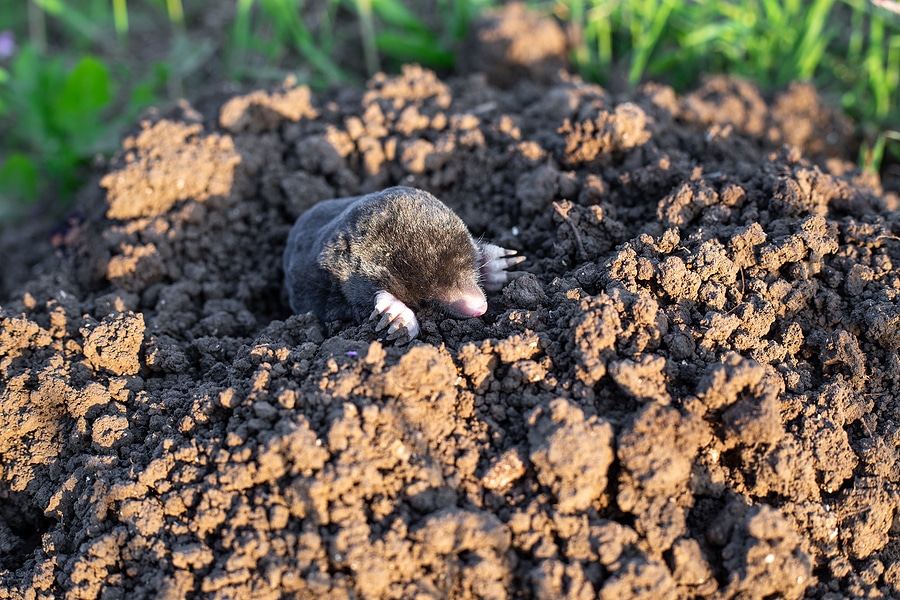Do you have unsightly molehills popping up all over your lawn this spring? It’s not only inconvenient, but it can also ruin the aesthetics of your yard. Moles are small underground rodents that love to live and feed in healthy gardens and lawns. But why do they keep invading your lawn and not someone else’s? Lawn Plus Pest Control Services explains.

1. Plenty of Food
One of the primary reasons you might have a mole problem in your lawn is that the soil is harboring grubs, worms, and other insects. Moles have a keen sense of smell and can detect any earthworms or insects lurking beneath your lawn’s soil. This is why they tend to dig underneath the grass layers, destroying them in the process. Moles love to feed on earthworms and other small invertebrates that thrive in aerated soil with plenty of organic matter. So, if your soil is full of grubs, you’ll likely have moles.
2. Watering
Another reason why moles may be invading your lawn is overwatering. Excess moisture encourages more earthworms, grubs, and other small creatures that moles feed on. Moist soil is also easier to tunnel through. To avoid mole infestations and lawn damage, only water your lawn when it’s necessary, and try to water in the morning when the soil can absorb the water without passing it right through.
3. Lack of Predator Presence
Moles have only a few natural predators, including owls, hawks, and snakes, hence why they thrive in healthy lawns rather than open fields. Suppose your lawn lacks any natural predators of moles; it’s an invitation for these rodents to take over your yard. Installing bird feeders or planting flowers that attract birds, such as sunflowers, will encourage birds to come and hunt for their natural prey, including the pesky moles.
Get Rid of Your Mole Problem
Do moles keep invading your lawn? Call Lawn Plus Pest Control Services at (513) 296-7378. We help homeowners throughout Cincinnati, OH, taking care of moles with our active live baits. Need us to take care of other pests? Ask us about our specially designed pest control programs for fleas and ticks, mosquitoes, or carpenter bees.

